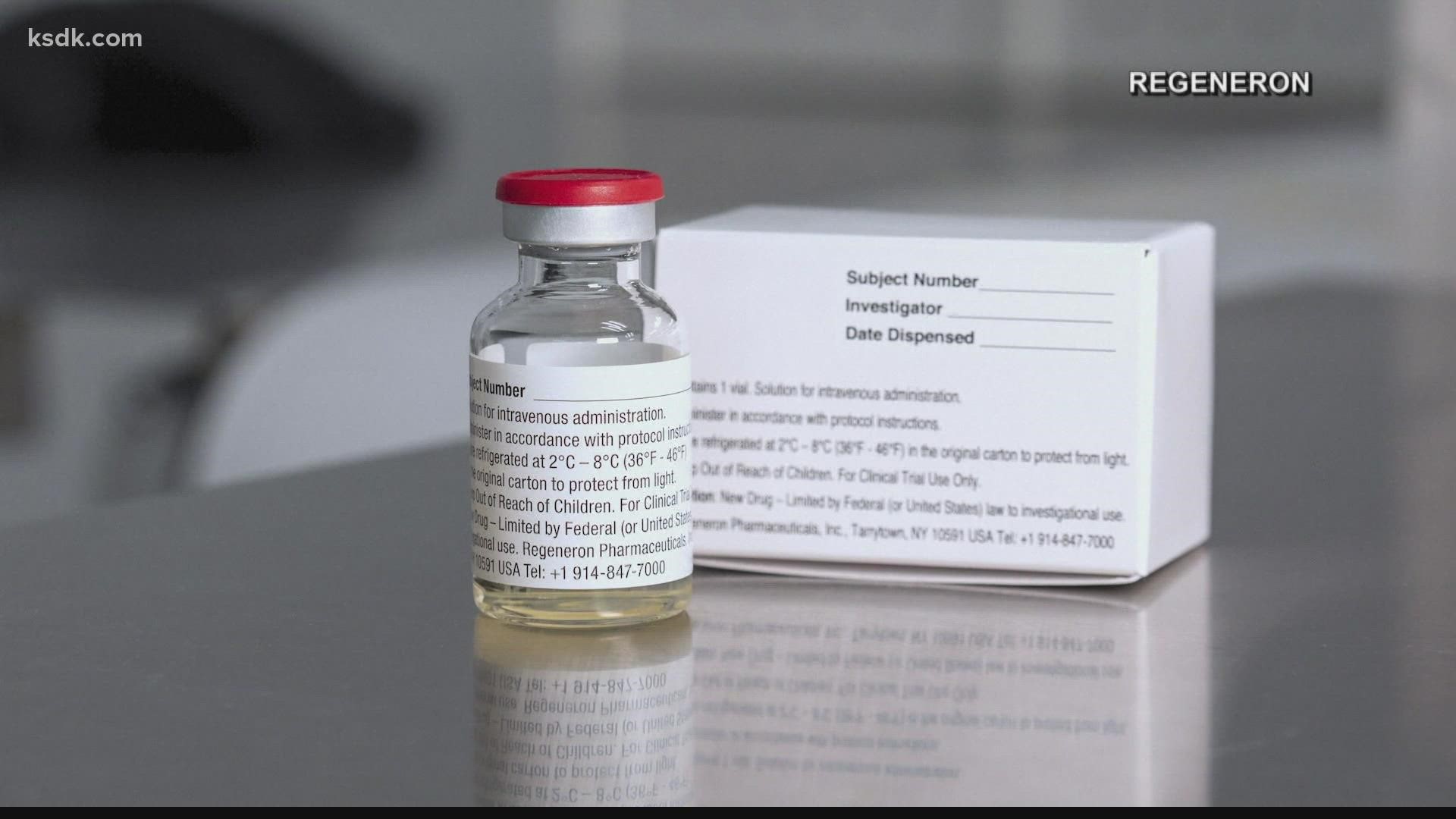MISSOURI, USA — Missouri is opening antibody treatment centers in several counties in the hopes that they'll keep some high-risk patients with COVID-19 from dying or becoming critically ill.
Monoclonal antibody infusion treatment will be available for 30 days at sites in Jackson, Pettis, Scott, Butler and Jefferson counties. Two more sites will be added later in the St. Louis area. The state is spending $15 million on the centers and believes they could treat up to 4,000 people over the next month.
Gov. Mike Parson said in a statement that the goal is “that these infusion centers will help relieve hospital strain and health care worker fatigue as we move forward with our efforts to get more Missourians vaccinated.”
The initial site was set up last month in southwestern Missouri, a region hit hard by the delta variant surge. Health officials said 588 people have been treated at an infusion center in Springfield. Katie Towns, the health director for Springfield and Greene County, said in a news release that the treatment “has undoubtedly saved lives in our community.”
The drugs are lab-made versions of virus-blocking antibodies that help fight off infections. Antibody treatments are among the few therapies that can lessen the effects of COVID-19, and they are seen as an option for those with mild-to-moderate cases who aren’t yet in hospitals.
BJC Healthcare in St. Louis has been offering the treatment since November with great success, said Dr. Maya Jerath, co-lead for monoclonal antibody treatment at BJC and a professor of medicine at the Washington University School of Medicine.
Jerath said just 3% to 5% of patients at BJC who receive the antibody treatment end up being hospitalized, "which is a lot lower than you would expect with the kind of patients that they are because this is being used in high-risk patients.” Among the factors that put people at higher risk are old age, obesity, diabetes and heart disease.
Demand is especially high in states that have low vaccination rates and crowded hospitals, such as Missouri, Florida, Louisiana and Texas. The White House said recently that federal shipments of the drugs increased five-fold in July to nearly 110,000 doses.
The main antibody drug is Regeneron, which the U.S. government purchased in mass quantities. Regeneron is the drug former President Donald Trump received while he was hospitalized with COVID-19 in October.
Jerath said infusion treatment is not a substitute for COVID-19 safeguards such as getting vaccinated and wearing a mask in public settings.
“No medicine that you take after the fact is going to work as well as preventing yourself from getting it,” Jerath said.
Infusion treatments began Wednesday at Truman Medical Center in Kansas City. The other sites are expected to begin operation within days.
The state's COVID-19 dashboard on Thursday showed that hospitalizations rose by 84, to 2,352. The state cited 2,161 newly confirmed cases, bringing its pandemic total to 622,081. The state also has reported 10,409 COVID-19 deaths since the onset of the pandemic.

